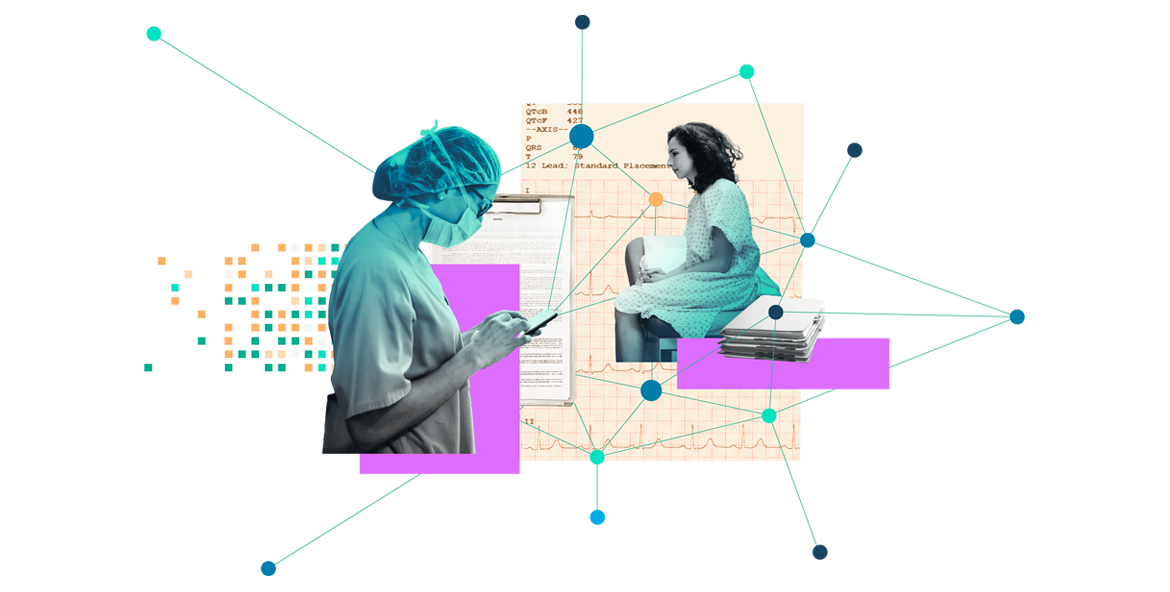
When Adam Rodman was a second-year medical student in the 2000s, he visited the library for a patient whose illness had left doctors stumped. Rodman searched the catalog, copied research papers, and shared them with the team.
“It made a big difference in that patient’s care,” Rodman said. “Everyone said, ‘This is so great. This is evidence-based medicine.’ But it took two hours. I can do that today in 15 seconds.”
Rodman, now an assistant professor at Harvard Medical School and a doctor at Beth Israel Deaconess Medical Center, these days carries a medical library in his pocket — a smartphone app created after the release of the large language model ChatGPT in 2022. OpenEvidence — developed in part by Medical School faculty — allows him to query specific diseases and symptoms. It searches the medical literature, drafts a summary of findings, and lists the most important sources for further reading, providing answers while Rodman is still face-to-face with his patient.
Artificial intelligence in various forms has been used in medicine for decades — but not like this. Experts predict that the adoption of large language models will reshape medicine. Some compare the potential impact with the decoding of the human genome, even the rise of the internet. The impact is expected to show up in doctor-patient interactions, physicians’ paperwork load, hospital and physician practice administration, medical research, and medical education.
Most of these effects are likely to be positive, increasing efficiency, reducing mistakes, easing the nationwide crunch in primary care, bringing data to bear more fully on decision-making, reducing administrative burdens, and creating space for longer, deeper person-to-person interactions.
But there are serious concerns, too.
Current data sets too often reflect societal biases that reinforce gaps in access and quality of care for disadvantaged groups. Without correction, these data have the potential to cement existing biases into ever-more-powerful AI that will increasingly influence how healthcare operates.
Another important issue, experts say, is that AIs remain prone to “hallucination,” making up “facts” and presenting them as if they are real.
Then there’s the danger that medicine won’t be bold enough. The latest AI has the potential to remake healthcare top to bottom, but only if given a chance. The wrong priorities — too much deference to entrenched interests, a focus on money instead of health — could easily reduce the AI “revolution” to an underwhelming exercise in tinkering around the edges.
“I think we’re in this weird space,” Rodman said. “We say, ‘Wow, the technology is really powerful.’ But what do we do with it to actually change things? My worry, as both a clinician and a researcher, is that if we don’t think big, if we don’t try to rethink how we’ve organized medicine, things might not change that much.”
Shoring up the ‘tottering edifice’
Five years ago, when asked about AI in healthcare, Isaac Kohane responded with frustration. Teenagers tapping away on social media apps were better equipped than many doctors. The situation today couldn’t be more different, he says.
Kohane, chair of the Medical School’s Department of Biomedical Informatics and editor-in-chief of the New England Journal of Medicine’s new AI initiative, describes the abilities of the latest models as “mind boggling.” To illustrate the point, he recalled getting an early look at OpenAI’s GPT-4. He tested it with a complex case — a child born with ambiguous genitalia — that might have stymied even an experienced endocrinologist. Kohane asked GPT-4 about genetic causes, biochemical pathways, next steps in the workup, even what to tell the child’s parents. It aced the test.
“This large language model was not trained to be a doctor; it’s just trained to predict the next word,” Kohane said. “It could speak as coherently about wine pairings with a vegetarian menu as diagnose a complex patient. It was truly a quantum leap from anything that anybody in computer science who was honest with themselves would have predicted in the next 10 years.”
Read full article in The Harvard Gazette